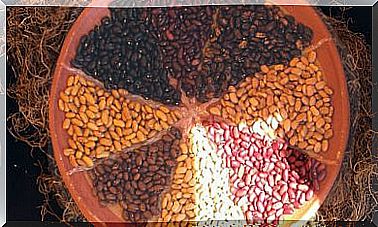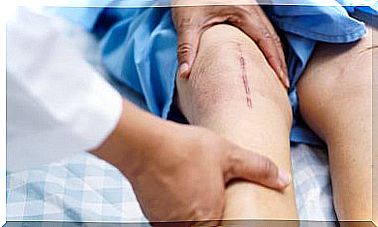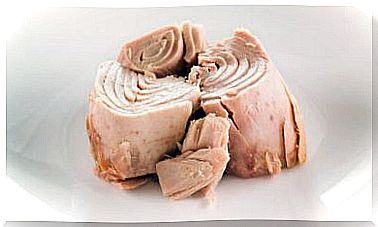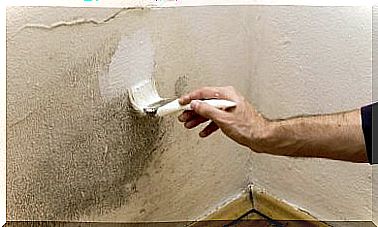Blood In The Stool, Why Is It Happening?
Finding blood in the stool is something that scares anyone. Especially since it is associated with one of the symptoms of colon cancer. However, finding blood when going to the bathroom can be due to many other reasons. In fact, not all of them are evil.
Norberto Mañas, the specialist in the Digestive System at the Hospital Clínico San Carlos in Madrid, points out:
Due to its frequency and importance, in this article we explain what are the main causes of blood in the stool.
How does blood appear in the stool?
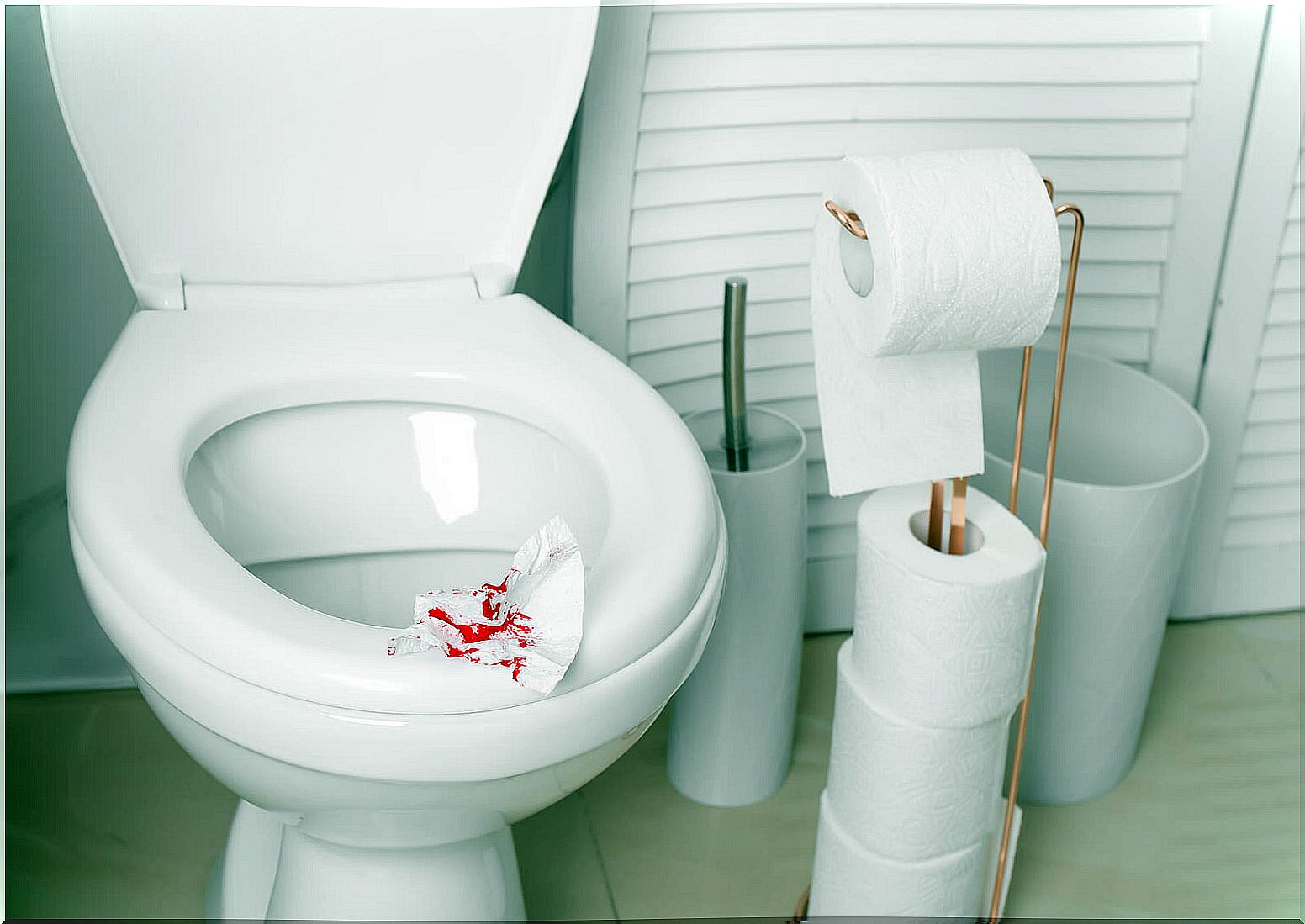
Blood in the stool can show up in different ways. In fact, on numerous occasions it is not even visible to the naked eye. The main ways to appreciate it are:
- Red blood that can be seen with the naked eye. It usually stains the toilet paper after you clean it. It can even appear as a drip after defecating. It is due to bleeding in the end of the intestine or in the anus. It is the type of blood that usually appears with hemorrhoids or fissures.
- Black tarry stools (manes). They are black stools with a foul odor. They are usually due to bleeding in the upper part of the digestive system. They are more serious than the previous ones.
- Stools mixed with blood or clots. They tend to appear this way in inflammatory bowel diseases. Also when there are polyps or even cancer.
- Hidden blood. It is not visible to the naked eye. In fact, it can only be detected by medical tests. However, other symptoms, such as anemia with no other obvious cause, may indicate that there is hidden blood in the stool. In these cases, a colonoscopy is essential.
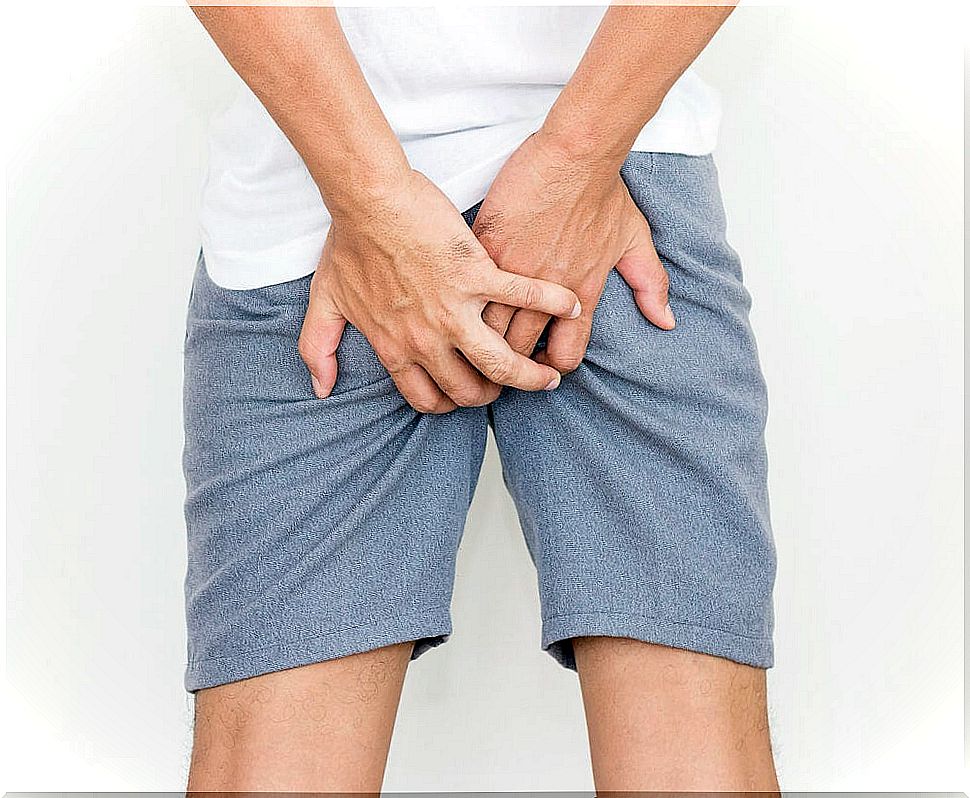
What are the causes of blood in stool?
As we have mentioned, the most alarming cause is colon cancer. However, it is not the only situation in which blood appears in the stool. Other causes are:
- Hemorrhoids (also called piles ). They are the main cause. They are dilated veins in the anus and rectum. They occur in 3 out of 4 adults occasionally. Its most common cause is overexertion when defecating during constipation. They are also common in women who have been pregnant.
- Anal fissure. It consists of a small tear in the mucosa that covers the anus. It can appear when large, hard stools are passed. It is also associated with constipation.
- Diverticula. They are small bumps in the large intestine. Its incidence increases with age.
- Intestinal polyps. They refer to tissue that grows further, most often in the large intestine. Most are not dangerous; however, some may be carcinogenic.
- Gastric or duodenal ulcers. They are lesions on the wall of the stomach or intestine. Like problems in the esophagus, they can be the cause of melena.
- Certain blood vessel disorders. Vasculitis or angiodysplasia can cause blood in the stool.
- Some infections
- Inflammatory diseases of the digestive tract. Both Crohn’s disease and ulcerative colitis often have blood in the stool.
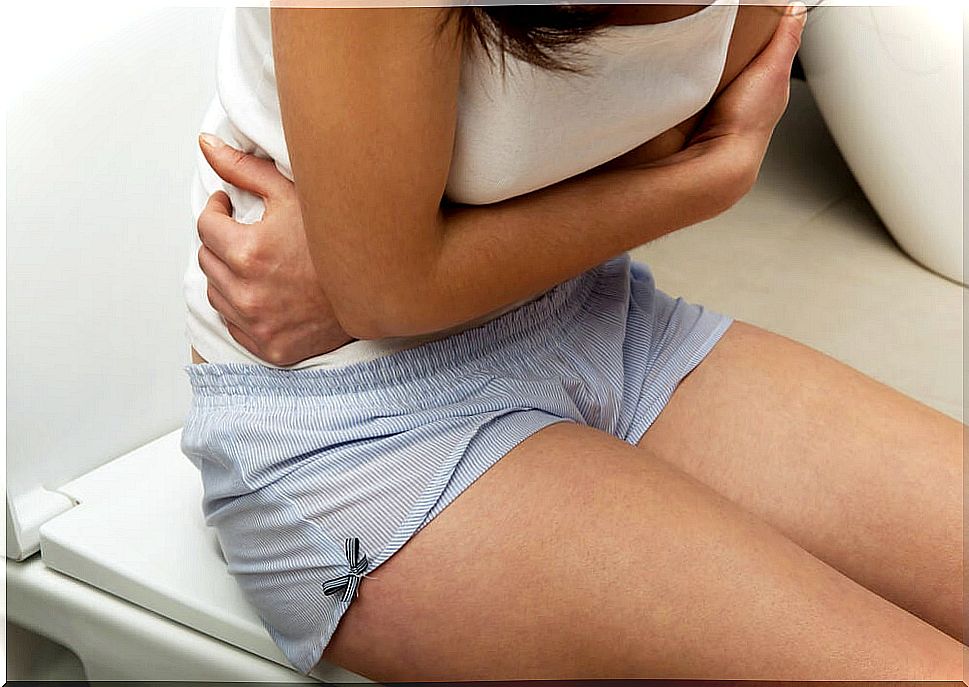
What should you do if you have blood in your stool?
As we have seen, finding blood when going to the bathroom can be due to many different causes. In addition, it is not always easy to diagnose and it may be something more serious than we think. Therefore, it is advisable to always go to the doctor.
You should provide the doctor with as much information as possible about your stool. The color, frequency and form of bleeding are very important for the diagnosis. This is why doctors recommend looking at stool.
On the other hand, from the age of 50, it is advisable to carry out a blood test in the stool periodically. A test strip can also be done. The intention is to detect hidden blood that cannot be seen with the naked eye.
Similarly, a digital rectal examination is usually performed. Digital rectal examination helps detect hemorrhoids and tumors in the rectum. In addition, it also serves to detect prostate problems. Although it is an uncomfortable test, it is worth taking it.
Colonoscopy is the most effective test to rule out colon cancer. Depending on the type of blood in the stool, other diagnostic tests such as gastroscopy, X-ray, or scintigraphy are also used.
Keep calm and consult the doctor when in doubt
If you find blood in your stool, don’t be alarmed. The causes can be very varied and it is common that it is due to hemorrhoids or an anal fissure. Still, do not hesitate to go to the doctor to rule out any other pathology.



